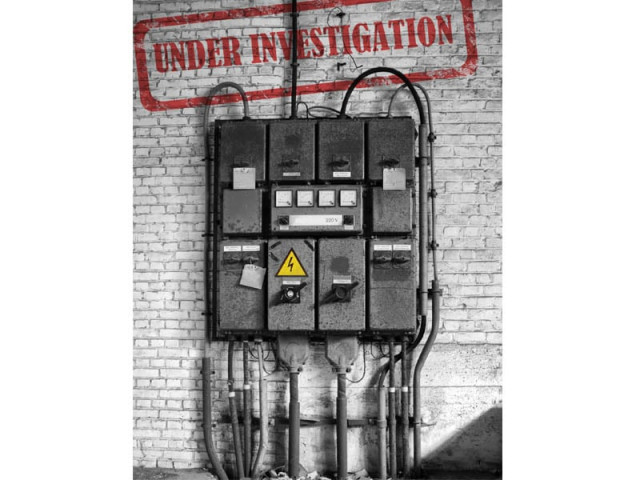Short circuit: NAB investigates factors that sparked energy crisis
Govt high-ups allegedly took bribes to allocate gas supply to powerful lobbies.

The National Accountability Bureau (NAB), in an attempt to determine the factors that have led to the energy crisis, has launched an investigation into kickbacks allegedly taken by government high-ups in allocating gas supply to powerful lobbies of different sectors, which eventually caused gas shortage for power companies, resulting in widespread load-shedding.
According to sources, the government has tasked NAB with investigating the factors that led to the energy crisis and shaved 2% off economic growth in the outgoing financial year.
“NAB has seized record of gas allocation to different sectors, gas pricing agreements and documents related to other issues,” a senior official of the Ministry of Petroleum and Natural Resources disclosed.
The bureau is currently recording statements of petroleum ministry officials to fix responsibility for malpractices.
According to sources, the government has violated the gas allocation policy since 2005 by reducing supplies to power plants and giving preference to other sectors. Though the general industry and CNG outlets were at 4th place in the priority list, gas supply to industries rose by 34% (766 million cubic feet per day) and CNG stations by 363% (310 mmcfd) over the seven-year period.
However, gas supply to power plants – third in the priority list – dropped from 44% (1,381 mmcfd) in financial year 2005 to 27% (924 mmcfd) in 2011.
“Gas supply was diverted from power companies to captive power plants of industries that consume an estimated 1,250 mmcfd, resulting in formation of a parallel power sector, which benefits only a limited number of industries at the cost of load-shedding for the entire nation,” the official commented.
Following shortage of gas, power companies increasingly relied on expensive furnace oil for electricity production, which has pushed up power tariff by 88% since financial year 2005, the official said, adding tariff differential claims of power companies also rose by an average of 51% per annum to Rs343 billion in 2011 compared to Rs44 billion in 2006.
NAB is also investigating malpractices in gas price agreements at lower rates by gas utilities – Sui Southern Gas Company (SSGC) and Sui Northern Gas Pipelines Limited (SNGPL), a higher unaccounted-for-gas (UFG) benchmark and award of petroleum concession licences at higher wellhead prices to some exploration companies.
The ministry official said NAB had reprimanded the gas utilities for a higher UFG level at 11%. NAB officials were of the view that the high UFG level was mainly due to gas theft by employees of the gas utilities.
Gas companies have been asked to justify the high UFG that, instead of coming down, is going up with the passage of time.
“NAB is also investigating issues related to gas production,” the official said, adding that officials of Director General Petroleum Concession were being questioned over their role in petroleum concession agreements with exploration companies. Since the announcement of the Petroleum Policy 2001, no major oil and gas discoveries have been made.
“There are hundreds of blocks for which licences have been granted by DGPC, but companies have not started work and are getting extension in licenses,” the official said. Some companies were offered exorbitant wellhead prices whereas some were getting lower rates that discouraged exploration activities.
NAB is also investigating the practice among exploration companies to sell their blocks to other companies in collaboration with DGPC officials.
Published in The Express Tribune, June 14th, 2012.



















COMMENTS
Comments are moderated and generally will be posted if they are on-topic and not abusive.
For more information, please see our Comments FAQ